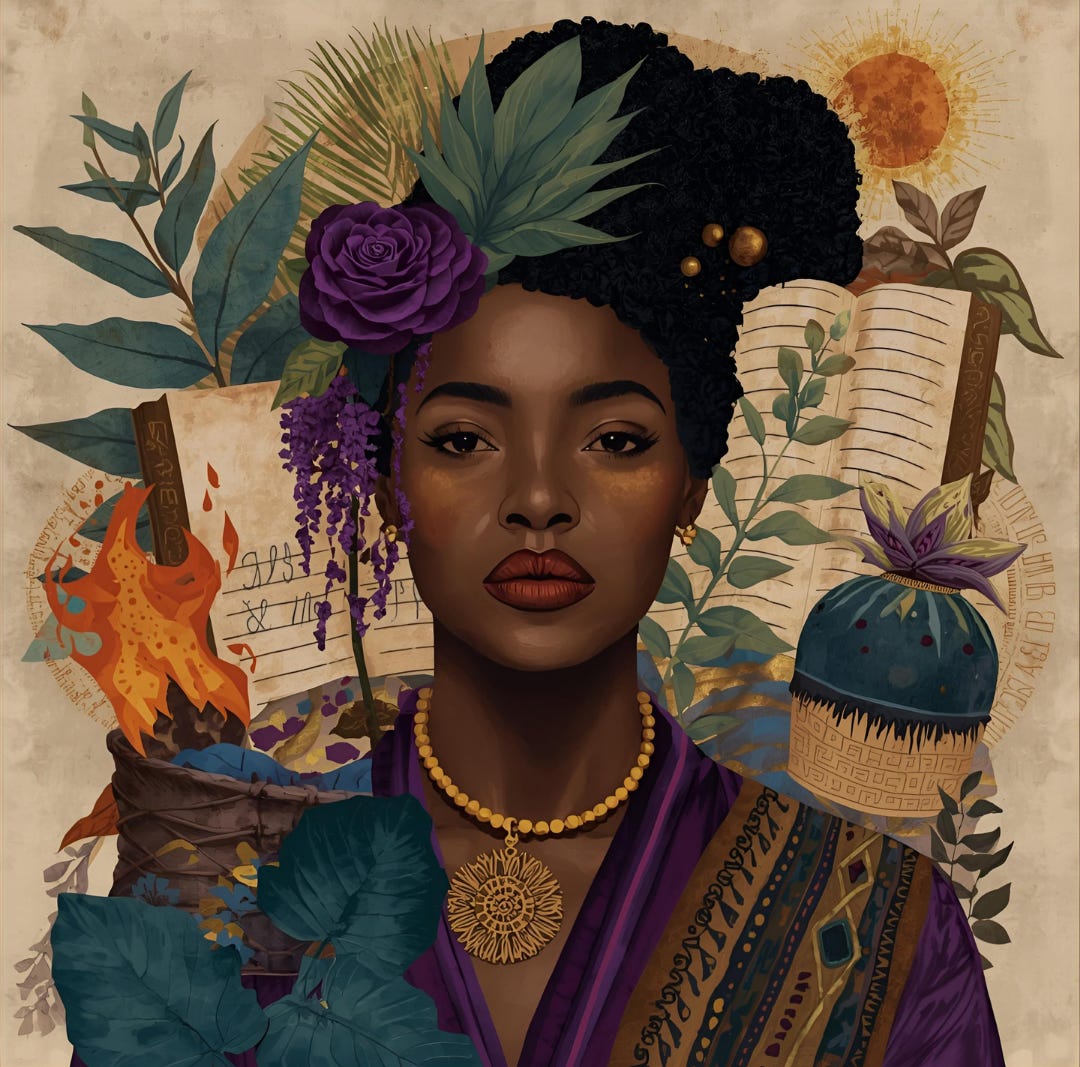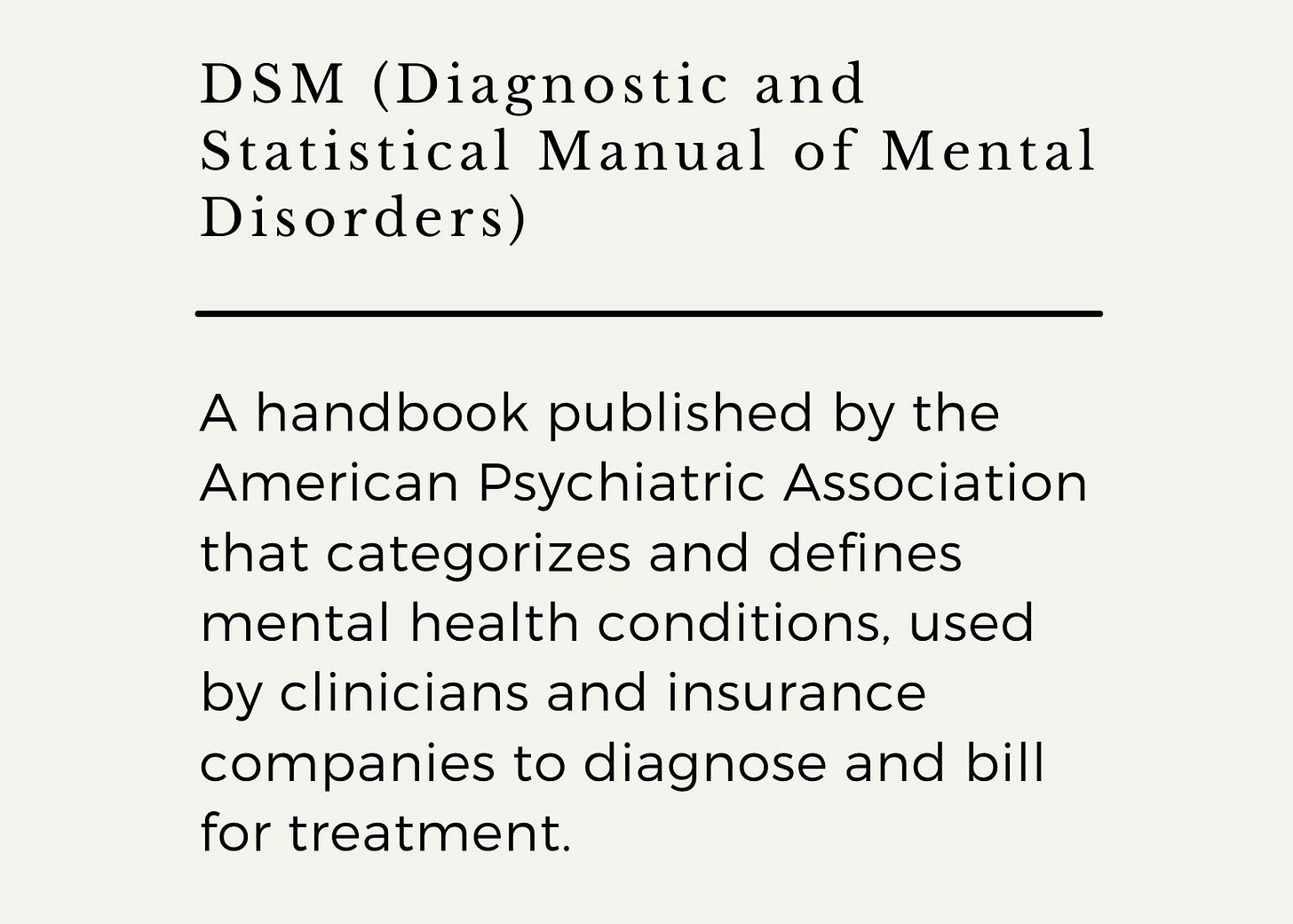Identity, A Poem
My mama called me “precious”. My mema deemed me an “old soul”. My Kindergarten teacher said, “She’s too smart for the curriculum”. While my childhood friends said I was “a lil’ slow”. My boss told me I was “always on the go”. My co-workers wondered “how I always seemed to know”. My doctor told me, “I was autistic.” My soul confirmed, “I was meant to be different.”
I wrote this poem this morning because I’ve been thinking a lot about intersectionality and how it shows up in self-perception. I have publicly questioned whether diagnosis limits or liberates, and heard arguments supporting both sides. Yet, the more I learn about indigenous psychology and the practices of decolonized healers, the more it confirms that labels can’t create identity without imposing limitations.
From Labeling to Living
I was diagnosed with autism at 33 and ADHD at 31. Those diagnoses explained many of my questions about how I navigate the world, but I struggled to reduce all of my experiences to a label. A diagnosis is meant to clarify, but it can also limit. The DSM boiled me down to a list of traits, and I couldn’t accept that.
Unmasking and healing didn't happen until I decolonized and depathologized my view to allow all parts of me to exist. No part was left untouched—everything from therapy, astrology, to spirituality helped me reclaim the pieces of identity that society told me were unacceptable.
Right now, I’m reading Indigenous Healing Psychology: Honoring the Wisdom of the First Peoples by Richard Katz. This work affirms what I already know in my bones: healing is as much about spirit and story as it is about science.
Yes, I am autistic.
And I am gifted.
And I am a healer.
And I am sensitive.
And I have Cancer Sun, Aquarius moon, and Gemini mercury. And I love hard and I like to talk.
All of those things define who Dr. Chelsia Potts is. I can’t be fully explained by the DSM alone. Neither can you. Especially not one created by institutions involved with the pharmaceutical and insurance industries that profit more from illness than from healing.
The Limits of a System
I’m not against diagnosis — it can be a powerful tool for self-understanding. However, like any tool, it can become a crutch because the goal of Western medicine is to profit, not to heal.
The pharmaceutical industry depends on retaining customers who rely on drugs to control symptoms, without addressing underlying causes. In this system, doctors must provide a diagnosis to secure insurance payments—even if they lack the time or training to fully understand the person, their background, or their prognosis.
Yes, there are exceptions. Yes, some doctors have good intentions. But good intentions cannot change the reality of the system they work in, and that system was never designed for liberation.
Consider this:
When was the last time you spent more than 45 minutes with your doctor?
How many times have you been misdiagnosed, overdiagnosed, or dismissed altogether?
How often has your pain been minimized or explained away?
These experiences are heightened for Black and brown people, who are often misunderstood, underserved, and excluded by a health system that was never designed with them in mind. Here is the link to the American Psychological Association's apology to People of Color in 2021 for those who want receipts.
That said, why would I trust a system that profits from my oppression to help me find freedom? It wouldn’t, and that’s why it’s our duty to find healing in everything they taught us to fear.
Beyond the Box
Healing isn't about labeling; it's about living. Healing requires vulnerability, empathy, and a sense of community. It involves sharing knowledge that isn't confined by power structures but rooted in reciprocity. Healing needs healers to serve as role models, not just figureheads.
My aim isn't to completely reject Western medicine practices and diagnoses, nor is it to invalidate positive experiences with Western medicine. I've seen excellent results and believe they are valuable tools when used with integrity. However, I recognize what these practices often omit and who they may overlook. Therefore, my goal is to help people remember that there's always more to the story.
There is more to your story, and the DSM can’t measure every chapter.
Western medicine is one tool in the kit, but it is not the holy grail. It can sit alongside indigenous practices, holistic methods, spiritual rituals, and the wisdom you carry in your own body. What I push back against is the hierarchy that makes everything outside of Western medicine seem “less than.” Healing is not one-size-fits-all, and the path to wholeness rarely comes from one system alone.
You have the right to gather every tool that serves you, to weave your own medicine, and to trust that your healing does not need anyone else’s permission to be valid.
Healing is Holistic
Healing is not a formula—it’s an art.
It shows up in many forms: through educators, storytellers, comedians, and writers.
It requires vulnerability, presence, and truth—things that can’t always be reached in a neatly packaged six-session plan on a telehealth platform.
Sometimes healing means six sessions and a sound bath. Sometimes it means a journal and a rolling paper. Sometimes it means intimate conversations & new perspectives. Sometimes it means good sex and mirror affirmations. Sometimes it means silence.
Because healing is not about diagnosis, and it is not about a system.
Healing is about remembering.
It is about returning.
It is about refusing to shrink into the definitions of people who cannot see your fullness.
Support Divergenthood
✨ If you’re enjoying Divergenthood, consider supporting it—by leaving a comment, sharing this post, upgrading your subscription, or even buying me a coffee. Every gesture, big or small, fuels me to keep writing and creating for this community.
🌿 And if you’re ready for 1:1 support on your unmasking journey, you can schedule a consultation below.
Thank you for being here. 💜





Thank you for this reminder 🤍